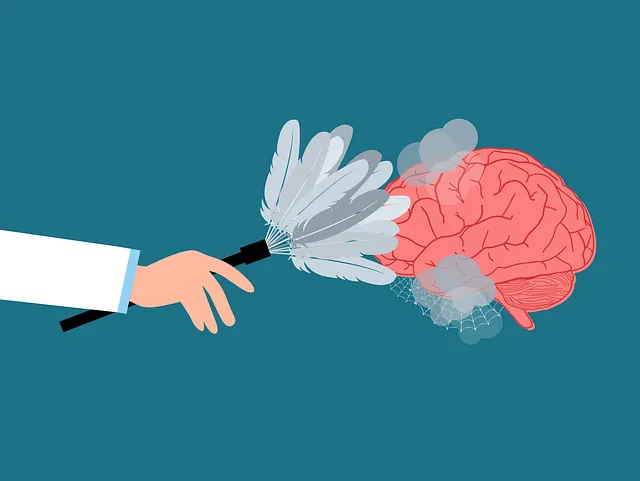Mental wellness self-assessment tools, modeled after best practices from the Kaiser Permanente behavioral health center in Parker, are essential for early intervention and building psychological resilience. These assessments, combining evidence-based methods with self-care practices and tailored stress management workshops, encourage open dialogue and support-seeking behaviors. The Kaiser Permanente center in Parker is a leader in holistic mental wellness care, integrating cultural sensitivity to provide personalized, inclusive services. By focusing on coping skills, inner strength development, and trauma-informed care, these assessment tools empower individuals with effective strategies for managing stress, anxiety, and trauma while promoting overall well-being.
Mental wellness self-assessment tools play a crucial role in early intervention and promoting holistic well-being. This article explores the development of such tools, drawing insights from the Kaiser Permanente Behavioral Health Center Parker, a leading model for comprehensive care. We’ll delve into identifying core components, integrating evidence-based practices, and ensuring cultural sensitivity to create effective assessments that accurately gauge mental wellness and enhance user experiences. By learning from innovative centers like Parker, we can revolutionize mental health support.
- Understanding Mental Wellness Self-Assessment: A Key to Early Intervention
- Kaiser Permanente Behavioral Health Center Parker: A Leading Model for Comprehensive Care
- Identifying Core Components: Building an Effective Self-Assessment Tool
- Integrating Evidence-Based Practices: Enhancing Assessment Accuracy and User Experience
- Continuous Improvement: Ensuring Cultural Sensitivity and Adaptability in Mental Wellness Tools
Understanding Mental Wellness Self-Assessment: A Key to Early Intervention

Mental wellness self-assessment tools play a pivotal role in early intervention strategies for maintaining robust psychological health. These assessments empower individuals to gain profound insights into their mental well-being, enabling them to identify potential issues at an early stage. By utilizing evidence-based methods, such as those employed by the Kaiser Permanente behavioral health center in Parker, these tools facilitate self-reflection and promote proactive measures.
Early detection is crucial in addressing mental health concerns effectively. Self-Care Practices and Communication Strategies are integral components of these assessments, fostering open dialogue and encouraging individuals to seek support when needed. Additionally, Stress Management Workshops organized by various organizations can be tailored to complement the self-assessment process, providing practical tools for managing stress and enhancing overall well-being.
Kaiser Permanente Behavioral Health Center Parker: A Leading Model for Comprehensive Care

The Kaiser Permanente Behavioral Health Center in Parker has emerged as a leading model for comprehensive mental wellness care. This center exemplifies an integrated approach, seamlessly combining medical and behavioral health services to address the multifaceted needs of individuals and communities. By offering a wide range of programs, from individual therapy sessions to specialized groups and stress management workshops, the facility caters to diverse populations with varying levels of need.
One notable aspect is its focus on Cultural Sensitivity in Mental Healthcare Practice. Recognizing the impact of cultural background on mental health experiences and treatment outcomes, the center prioritizes culturally competent care. This approach ensures that all patients receive personalized support, fostering a safe and inclusive environment where individuals feel understood and empowered to take charge of their mental wellness journeys. The Kaiser Permanente Behavioral Health Center Parker thus serves as an inspiring example for other healthcare organizations aiming to enhance their services through comprehensive and culturally responsive practices.
Identifying Core Components: Building an Effective Self-Assessment Tool

Identifying Core Components is a crucial step in developing an effective self-assessment tool for mental wellness. A comprehensive toolkit should include elements that capture not just an individual’s current state but also their coping mechanisms, resilience, and access to support networks. This process involves drawing insights from renowned behavioral health centers like Kaiser Permanente Parker, which has established best practices in promoting mental well-being among healthcare providers. By integrating evidence-based methods, such as those found in Mental Health Education Programs Design, the self-assessment can become a powerful resource for personal growth and burnout prevention strategies.
Focusing on these core components ensures that the tool is not only diagnostic but also empowering. It allows individuals to reflect on their coping skills development and identify areas where they may need additional support. This proactive approach aligns with broader initiatives in the healthcare sector, particularly Burnout Prevention Strategies for Healthcare Providers, by fostering a culture of self-care and resilience within medical communities.
Integrating Evidence-Based Practices: Enhancing Assessment Accuracy and User Experience

Integrating evidence-based practices is a cornerstone in enhancing both assessment accuracy and user experience within mental wellness self-assessment tools. By adopting approaches validated at Kaiser Permanente behavioral health centers in Parker, for instance, these tools can offer more precise insights into individuals’ psychological states. This involves incorporating strategies such as cognitive-behavioral therapy (CBT) techniques, mindfulness exercises, and trauma-informed care principles.
Such integration not only improves assessment accuracy but also creates a more user-friendly experience. For example, self-assessment tools that focus on Inner Strength Development and Coping Skills Development can empower users by equipping them with effective strategies to manage stress, anxiety, and even traumatic experiences. By seamlessly incorporating Trauma Support Services within these tools, individuals are encouraged to explore and address underlying issues, fostering a holistic approach to mental wellness.
Continuous Improvement: Ensuring Cultural Sensitivity and Adaptability in Mental Wellness Tools

At a Kaiser Permanente behavioral health center in Parker, continuous improvement is at the core of their mental wellness tool development process. They recognize that what works for one community might not be suitable for another, emphasizing the importance of cultural sensitivity and adaptability. This approach ensures that the tools they create are accessible and effective for diverse populations, tailored to specific needs like stress reduction methods. By incorporating feedback from users and staying updated with emerging research in mental health education programs design, they continually refine their offerings.
Additionally, empathy building strategies play a significant role in this process. Understanding user experiences and perspectives fosters more inclusive and relevant tools. This commitment to adaptability not only improves the effectiveness of their resources but also strengthens the connection between users and the support they receive, ultimately enhancing the overall mental wellness of the community served by the Kaiser Permanente behavioral health center in Parker.
Mental wellness self-assessment tools, grounded in evidence-based practices and designed with cultural sensitivity, are crucial for early intervention and comprehensive care. The Kaiser Permanente Behavioral Health Center in Parker serves as a leading model, emphasizing the importance of these tools in enhancing assessment accuracy and user experiences. By continuously improving these assessments, we can ensure they remain adaptable to diverse populations, fostering better mental health outcomes across communities.






